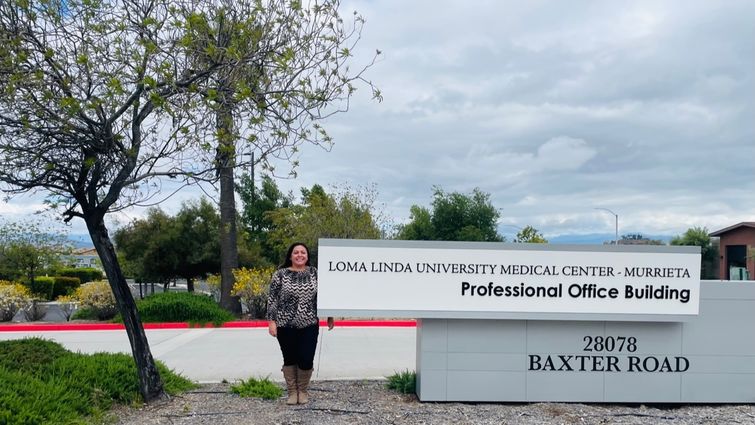

As the COVID-19 pandemic unfolded, therapists had to adapt to a rapidly changing landscape, learning new skills and approaches to help their clients cope with the unique challenges of the pandemic. Alexandra Shirozono, MA, LMFT, a clinical therapist at Loma Linda University Behavioral Health, applies what she learned in a “post-pandemic” world in both her personal life and work with her clients.
Teletherapy works
Before the pandemic, teletherapy was a niche practice that many therapists used only for clients unable to attend in-person sessions. But as lockdowns and social distancing measures made it difficult for clients to come to the office, teletherapy quickly became the norm. And to the surprise of many therapists, it worked remarkably well. While remote therapy has some limitations, such as difficulties building rapport and reading nonverbal cues, Shirozono found that she could maintain effective therapeutic relationships with her clients through videoconferencing and phone calls. As a result, teletherapy continues as an option even as the pandemic subsides.
“Clients appreciate the convenience and flexibility of remote therapy, and it’s an effective way to reach people who might not otherwise have access to mental health services,” Shirozono said.
The importance of flexibility
The pandemic forced Shirozono and colleagues to be more flexible in their approach to therapy. With so many clients facing unexpected challenges, they had to be willing to adapt their treatment plans to meet the unique needs of everyone. For example, therapists might shift their focus from long-term goals to more immediate concerns, such as managing anxiety or depression related to the pandemic. They also had to be creative in finding ways to help clients cope with the stress and isolation of lockdowns, such as by encouraging virtual social connections or promoting self-care activities.
This flexibility has been a valuable lesson for Shirozono, who recognizes the importance of tailoring her approach to the specific needs of each client, more so than before. She incorporates a range of therapeutic modalities and techniques, such as cognitive-behavioral therapy, Eye Movement Desensitization and Reprocessing, mindfulness, and somatic experiencing, to help clients achieve their goals.
The need for self-care
The peak of the pandemic was a stressful time for everyone, including mental health therapists. Many therapists found themselves dealing with personal and professional challenges, such as working from home while juggling family responsibilities or experiencing anxiety and burnout.
To cope with these challenges, therapists had to prioritize their self-care. Shirozono learned the importance of taking breaks, setting boundaries, and seeking support from colleagues and supervisors. She became more attuned to her emotional needs and was more willing to seek support when she needed it.
“Today, I think, mental health therapists are more aware than ever of the importance of self-care, not just for their own well-being, but also for the well-being of our clients,” Shirozono said. “We are more likely to encourage clients to practice self-care by modeling healthy behaviors ourselves.”
The value of community
Shirozono said the pandemic highlighted the importance of community in supporting mental health. As people had to isolate and social distance, many therapists found their clients struggling with feelings of loneliness, isolation, and disconnection. To address these issues, Shirozono had to help her clients find ways to connect with others, whether through virtual support groups, online communities, or safe in-person activities.
This emphasis on community was especially valuable for therapists, who relied on support from colleagues to navigate the challenges of the pandemic.
“We came together to share resources, offer advice, and provide emotional support to one another, recognizing that we are all in this together,” Shirozono said. “Though it was a horrible time in the world, the behavioral health treatment community learned so much and discovered new ways to help our clients.”
May is Mental Health Month. Loma Linda University Behavioral Health leads the region in mental health treatment offering the full spectrum of behavioral health programs and services to fit your needs in Redlands, Murrieta, and Rancho Cucamonga. Click here to request more information about the mental health programs offered.


